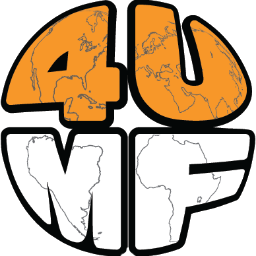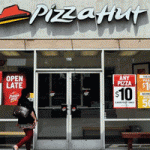Cyber Attacks hit Netflix, Spotify, Twitter
 ( 4UMF NEWS ) Cyber Attacks hit Netflix, Spotify, Twitter:
At least two successive waves of online attacks blocked multiple major websites Friday, at times making it impossible for many users on the East Coast to access Twitter, Spotify, Netflix, Amazon, Tumblr, Reddit and other sites.
The first attacks appear to have begun around 7:10 a.m. Friday, then resolved towards 9:30 a.m., but then a fresh wave began.
The cause was a large-scale distributed denial of service attack (DDoS) against Internet performance company Dyn that blocked user access to many popular sites. Such DDoS attacks have a long history online but may be increasing in numbers with the recent release of easy-to-use computer code to create them.
Effects felt nationwide
Dyn first reported issues at around 11:10 a.m. UTC, or roughly 7:10 a.m. ET, posting on its website that it "began monitoring and mitigating a DDoS attack against our Dyn Managed DNS infrastructure."
In an update posted at 8:45 a.m. ET, the company confirmed the attack, noting that "this attack is mainly impacting US East and is impacting Managed DNS customers in this region. Our Engineers are continuing to work on mitigating this issue."
By 2:52 p.m. ET, Dyn posted that the service monitoring issues had been resolved and that its engineers continued to investigate and mitigate the attacks on its infrastructure.
Amazon, whose web service AWS hosts many of the web's popular destinations including Netflix, also reported East Coast issues around the same time. In an update posted at 9:36 a.m. ET it said that it had "been resolved and the service is operating normally."
White House Press Secretary Josh Earnest said the Department of Homeland Security was “monitoring the situation" but that “at this point I don’t have any information about who may be responsible for this malicious activity.”
Who and why unknown
It was unclear Friday who was behind the attacks and whether they were focused on Dyn specifically or on the many companies that it provides services to.
The attack is “consistent with record-setting sized cyberattacks seen in the last few weeks,” said Carl Herberger, vice president of security at security company Radware.
He noted that easy-to-use computer code that allows even amateurs to create to create robot networks, so-called 'bot nets', to attack websites was released by hackers earlier this month.
Others worried the attack could be from a nation-state rather than simply a single individual seeking to wreak havoc.
“This is not a script kiddie,” said Markus Jakobsson, chief scientist at Agari, a computer security firm based in San Mateo, Calif. By that he meant unskilled hackers who use others' programs, or scripts, to hack into systems because they lack the expertise to write their own software.
“This was not just an instant job, this is something that was probably worked on for weeks if not for months by really competent people,” he said.
Disruption
A post on Hacker News first identified the attack and named the sites that were affected. Several sites, including Spotify and GitHub, took to Twitter this morning to post status updates once the social network was back online.
As part of its business, Dyn provides DNS services for a given swath of the Internet, effectively its address book. DNS stands for Domain Name System, the decentralized network of files that list the domain names human beings use, such as usatoday.com, with their numeric Internet Protocol addresses, such as 184.50.238.11, which is how computers look for websites.
"If you go to a site, say yahoo.com, your browser needs to know what the underlying Internet address that’s associated with that URL is. DNS is the service that does that conversion,” said Steve Grobman, chief technology officer for Intel Security.
The attack hit the Dyn server that contains that address book. Dyn provides that service to multiple Internet companies. For anyone linked to a computer that used the service, when they entered twitter.com or tumblr.com or Spotify.com, via a complex series of jumps the address book is able to tell their browser which numerical IP address to look at.
The DDoS attack floods that server with illegitimate requests, so many that very few real requests can get through. The user gets a message that the server is not available. Service is intermittent because a few requests are sometimes still able to go through.
In addition, many sites keep cached address books their computers can refer to. However those caches always have a time limit on them and when that “time to live” expires, they must go back to the DNS server to confirm the IP address is valid. If the DNS server is unavailable, a site that was working could suddenly stop being available, said Grobman.
Source
( 4UMF NEWS ) Cyber Attacks hit Netflix, Spotify, Twitter:
At least two successive waves of online attacks blocked multiple major websites Friday, at times making it impossible for many users on the East Coast to access Twitter, Spotify, Netflix, Amazon, Tumblr, Reddit and other sites.
The first attacks appear to have begun around 7:10 a.m. Friday, then resolved towards 9:30 a.m., but then a fresh wave began.
The cause was a large-scale distributed denial of service attack (DDoS) against Internet performance company Dyn that blocked user access to many popular sites. Such DDoS attacks have a long history online but may be increasing in numbers with the recent release of easy-to-use computer code to create them.
Effects felt nationwide
Dyn first reported issues at around 11:10 a.m. UTC, or roughly 7:10 a.m. ET, posting on its website that it "began monitoring and mitigating a DDoS attack against our Dyn Managed DNS infrastructure."
In an update posted at 8:45 a.m. ET, the company confirmed the attack, noting that "this attack is mainly impacting US East and is impacting Managed DNS customers in this region. Our Engineers are continuing to work on mitigating this issue."
By 2:52 p.m. ET, Dyn posted that the service monitoring issues had been resolved and that its engineers continued to investigate and mitigate the attacks on its infrastructure.
Amazon, whose web service AWS hosts many of the web's popular destinations including Netflix, also reported East Coast issues around the same time. In an update posted at 9:36 a.m. ET it said that it had "been resolved and the service is operating normally."
White House Press Secretary Josh Earnest said the Department of Homeland Security was “monitoring the situation" but that “at this point I don’t have any information about who may be responsible for this malicious activity.”
Who and why unknown
It was unclear Friday who was behind the attacks and whether they were focused on Dyn specifically or on the many companies that it provides services to.
The attack is “consistent with record-setting sized cyberattacks seen in the last few weeks,” said Carl Herberger, vice president of security at security company Radware.
He noted that easy-to-use computer code that allows even amateurs to create to create robot networks, so-called 'bot nets', to attack websites was released by hackers earlier this month.
Others worried the attack could be from a nation-state rather than simply a single individual seeking to wreak havoc.
“This is not a script kiddie,” said Markus Jakobsson, chief scientist at Agari, a computer security firm based in San Mateo, Calif. By that he meant unskilled hackers who use others' programs, or scripts, to hack into systems because they lack the expertise to write their own software.
“This was not just an instant job, this is something that was probably worked on for weeks if not for months by really competent people,” he said.
Disruption
A post on Hacker News first identified the attack and named the sites that were affected. Several sites, including Spotify and GitHub, took to Twitter this morning to post status updates once the social network was back online.
As part of its business, Dyn provides DNS services for a given swath of the Internet, effectively its address book. DNS stands for Domain Name System, the decentralized network of files that list the domain names human beings use, such as usatoday.com, with their numeric Internet Protocol addresses, such as 184.50.238.11, which is how computers look for websites.
"If you go to a site, say yahoo.com, your browser needs to know what the underlying Internet address that’s associated with that URL is. DNS is the service that does that conversion,” said Steve Grobman, chief technology officer for Intel Security.
The attack hit the Dyn server that contains that address book. Dyn provides that service to multiple Internet companies. For anyone linked to a computer that used the service, when they entered twitter.com or tumblr.com or Spotify.com, via a complex series of jumps the address book is able to tell their browser which numerical IP address to look at.
The DDoS attack floods that server with illegitimate requests, so many that very few real requests can get through. The user gets a message that the server is not available. Service is intermittent because a few requests are sometimes still able to go through.
In addition, many sites keep cached address books their computers can refer to. However those caches always have a time limit on them and when that “time to live” expires, they must go back to the DNS server to confirm the IP address is valid. If the DNS server is unavailable, a site that was working could suddenly stop being available, said Grobman.
Source
- Share:
Popular Posts

Ligula in sociosqu feugiat porttitor
3 December, 2014 0

Non proident, sunt in culpa qui officia
4 December, 2014 0

Enim ad minim veniam, quis nostrud
4 December, 2014 0

Omnis iste natus error sit voluptatem
4 December, 2014 0

Ac dui eu nibh feugiat viverra
3 December, 2014 0

Quis nostrud exercitation ullamco
3 December, 2014 0

Top Reality Star Has AIDS
16 January, 2013 2

Elementum lorem sed elit vehicula sit
3 December, 2014 0

Culpa qui officia deserunt mollit
3 December, 2014 0

Matt Barnes Expected To Be Charged In Nightclub Brawl
28 January, 2017
 4UMF | Current Events | Current News | Latest News
4UMF | Current Events | Current News | Latest News
- Matt Barnes Expected To Be Charged In Nightclub Brawl
- MMA Fighter Roshaun Jones Charged With Murder
- Adults Overdose In Car With 2 Kids In Backseat
- Woman Accused Of Throwing Used Tampon At Officer
- Malcolm X’s Daughter Charged With Stealing A Rental Truck
- Serena Williams Defeats Sister Venus
- Ex-NBA Player Charles Shackleford Found Dead
- Paris Jackson Claps Back At Wendy Williams
- Woman Who Caused Emmett Till’s Death Admits To Lying
- Migos Releases ‘Culture’ Album
Latest From
4 The Missing /
4UMF Exclusive /
4UMF Sweepstakes /
Album/Mixtape Reviews /
American Colors /
Automotive /
Behind The Scenes /
Blog /
Books /
Breaking News /
Business /
Business News /
Busted /
Cars /
Cartoon /
Cartoons /
Celebritea /
Celebrity Blogger /
Congrats /
Consumer News /
Crime and Punishment /
Did You Know /
Editorial /
Education /
Entertainment News /
Events /
Fashion News /
Featured /
Fights /
Good In The Hood /
Guess Who /
Guys Guys Guys /
Hairstyles /
Health News /
Hip Hop Honeys /
In The Studio /
International News /
Interviews /
IV League /
Kush Chronicles /
Lawsuits /
Leisure /
Lol /
Mixtapes /
Movie News /
Music /
Music News /
Music Videos /
News /
On The Set /
Performances /
Poetry /
Politics /
Put On Blast /
R.I.P. /
Race Matters /
Reality Shows /
Red Carpet /
Red Handed /
Reviews /
Rumors Or Truth /
Seen On The Scene /
Shopping /
Shots Fired /
Sneaker Files /
Sports /
Strange News /
Tech News /
Technology /
Television News /
thats My Take On It /
The Scoop /
Top Ten /
Tough World /
Twitter Beef /
Video Games /
Video Throwback /
Watch It /
Weekly Gossip /
Word From The Streets /
latest Tweets
- RT @Pingzicofficial: #WhatsAppStatus Sad #WhatsApp Status Messages for People not Feeling Well http://t.co/WDGFOAozA21 year ago
- RT @Pingzicofficial: #WhatsAppStatus - One wise guy invented mobile application WhatsApp…..and his wife added last seen feature. http://t.c…1 year ago
- RT @Pingzicofficial: 84 WhatsApp Love Status to Express your Heart’s Feelings https://t.co/U3p81GXQpx1 year ago
Most Commented
Categories
- 4 The Missing
- 4UMF Exclusive
- 4UMF Sweepstakes
- Album/Mixtape Reviews
- American Colors
- Automotive
- Behind The Scenes
- Blog
- Books
- Breaking News
- Business
- Business News
- Busted
- Cars
- Cartoon
- Cartoons
- Celebritea
- Celebrity Blogger
- Congrats
- Consumer News
- Crime and Punishment
- Did You Know
- Editorial
- Education
- Entertainment News
- Events
- Fashion News
- Featured
- Fights
- Good In The Hood
- Guess Who
- Guys Guys Guys
- Hairstyles
- Health News
- Hip Hop Honeys
- In The Studio
- International News
- Interviews
- IV League
- Kush Chronicles
- Lawsuits
- Leisure
- Lol
- Mixtapes
- Movie News
- Music
- Music News
- Music Videos
- News
- On The Set
- Performances
- Poetry
- Politics
- Put On Blast
- R.I.P.
- Race Matters
- Reality Shows
- Red Carpet
- Red Handed
- Reviews
- Rumors Or Truth
- Seen On The Scene
- Shopping
- Shots Fired
- Sneaker Files
- Sports
- Strange News
- Tech News
- Technology
- Television News
- thats My Take On It
- The Scoop
- Top Ten
- Tough World
- Twitter Beef
- Video Games
- Video Throwback
- Watch It
- Weekly Gossip
- Word From The Streets
Video Widget
Popular posts
Tags
Arts
Associated Press
Atlanta
Barack Obama
Brooklyn
Business
California
Chicago
Chris Brown
Disc jockey
Drake
Facebook
Florida
French Montana
Friday
Hip-Hop
Instagram
ITunes
Jay-Z
Kanye West
Kendrick Lamar
Lil Wayne
Los Angeles
Mixtape
Music
Music video
National Basketball Association
National Football League
New York
New York City
Nicki Minaj
Nike
Rapping
Recreation
Rick Ross
Rihanna
Shoe
Shopping
Sports
TMZ
Twitter
United States
video
Wiz Khalifa
YouTube


















































































































































































































































































































































